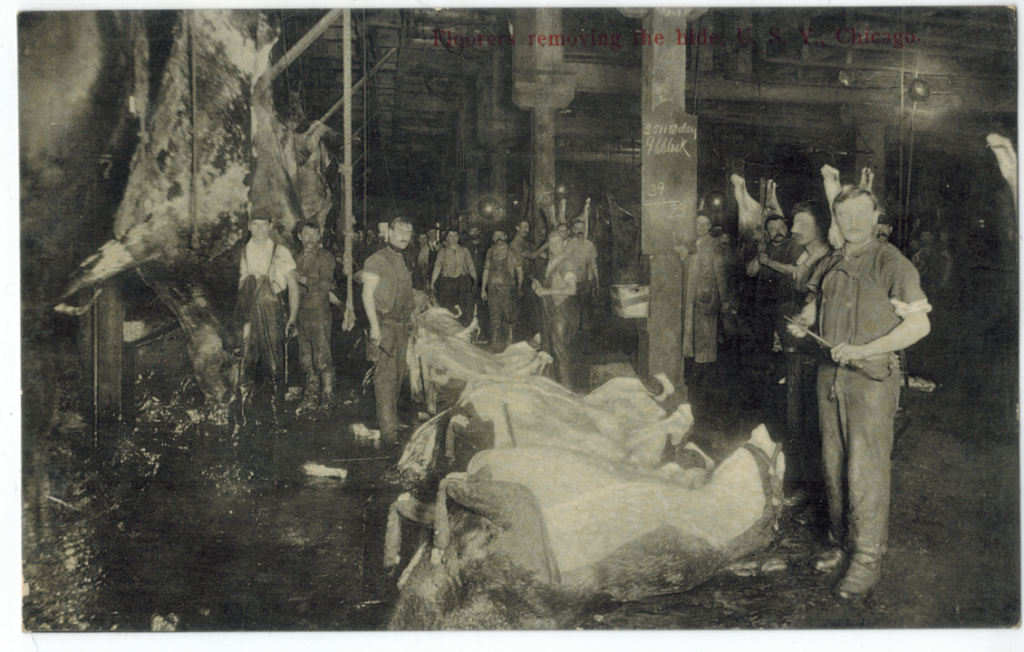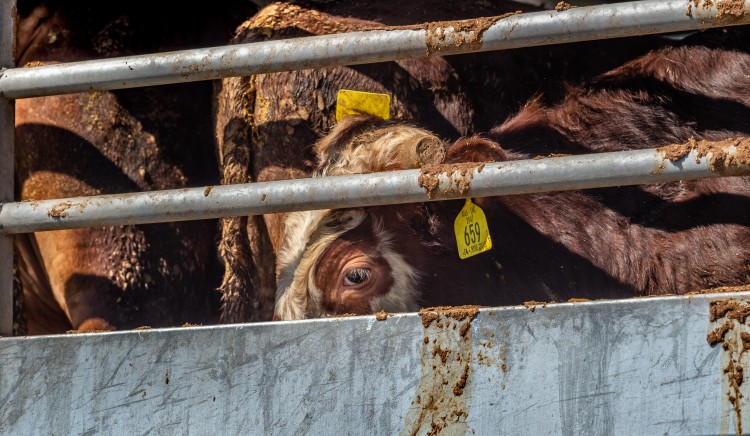In 1906, American journalist Upton Sinclair published his book The Jungle. With it, he wanted to raise awareness about the terrible working conditions and lives of immigrant workers in the meat industry in his country. Sinclair wanted to create outrage about this situation and thus hopefully improve the lives of these workers.
The Jungle’s main effect, however, was altogether different from Sinclair’s intentions. Rather than being angry at the working conditions, the general public was shocked and disgusted at the hygiene and health safety issues and hazards that Sinclair had described. This famously led Sinclair to say: “I aimed at their heart, but accidentally hit them in the stomach.”

It’s an interesting statement, and one that to some extent may be applicable to the outreach and campaigns of people concerned about how humans treat farmed animals. The animal protection/vegan movement – in essence a moral movement that wants to reduce suffering and create justice for all sentient beings – also aims at the heart, trying to increase people’s compassion for animals. Usually, what animal protection groups expose with their undercover investigations are horrific living and dying conditions of the animals, with the aim to make people care. Sure enough, these investigations often create a lot of outrage, and undoubtedly help shift attitudes or can lead to legal reforms. I believe they can be very useful.
Still, I wonder if the general public might feel stronger still about unsafe and/or disgusting foods than about “immoral” foods – which means that the political effect of this kind of outrage might be bigger. Here’s an example from some time ago: in 2008, an undercover investigation by the Humane Society of the United States (HSUS) showed “workers kicking sick cows and using forklifts to force them to walk.” There was some outrage over these practices, but the real kicker was that the video raised concerns about the safety of meat. Some of this particular product had ended up in school lunches. Consequently, HSUS’s investigation led to one of the largest meat recalls in US history – which, economically, is of course not a good thing for the meat company in question, or for meat consumption in general. It seemed that in this case, like Upton Sinclair, HSUS had aimed for the heart but kicked in the stomach.
So what if some animal groups, in addition to spreading awareness about cruelty and injustice, would also consciously, intentionally aim for the stomach and try to expose practices that, instead of being (just) immoral or cruel, are (also) unsafe, unhygienic or downright disgusting? These may look like different aspects, but they all boil down to the idea that these products might be unsafe to eat.

In general, animal-based foods are usually much more able to trigger a reaction of disgust or danger in humans than plant-based foods (that’s presumably evolutionary adaptive, as the risk of infections from organisms that are closer to us is greater). If you go through lists of the most disgusting foods, you’ll find that the animal foods feature much more prominently than plant-based foods (see for instance this disgusting list). Of note is also that there’s a whole body of literature about disgust. There might be a relationship between moral and physical disgust, though as far as I know there is no consensus about the direction of the relationship (whether moral beliefs are caused by physical disgust, or the other way round).
As food safety requirements for companies increase, hygienic conditions may be less and less of an issue, and certainly we will no longer come across circumstances as described by Sinclair in his book. But even if they are not present, the production process of some animal foods is so disgusting that showing the bare naked truth could potentially have a big impact. Here, for instance, is a video showing how gummy bears are made (using gelatin, an animal-derived product). Here’s one showing how hot dogs are made.
While undercover investigators bravely roam through factory farms, slaughterhouses or meat processing plants, they could seek to collect coverage that creates disgust or reactions around food safety. They could pass on this coverage to other organizations or anonymously to the press if this is not close enough to their own core business. Animal protection organizations could help spread coverage made by other groups or individuals.
I see many meat eaters still commenting how nasty meat alternatives look, taste or feel. At the same time, they’re chewing on pieces of an animal’s body, which usually went through a pretty disgusting process. One of the reasons many or most people are not disgusted by eating the meat of an animal is that the product, both physically and in terms of its image, has been sterilized. Maybe we can help de-sterilize it and help create the physical and moral disgust that decent human beings are bound to feel when they are even thinking about eating the bodies of mistreated creatures.
One caveat: I’m not in favor of vegans making unsubstantiated or exaggerated health claims about animal products. We shouldn’t say things that are not true just because they’re disgusting and will get a lot of clicks. Saying that milk contains pus is an example of that. I believe in the long run dramatic claims may do more bad than good.
Featured image: a young girl looks disgusted over her meal. Image credit Jon Evans, CC BY-SA 2.0.





